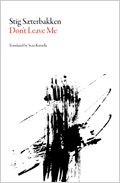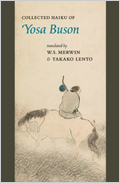Tomorrow is International Translation Day! According to Three Percent, a brilliant resource for international literature, less than 1% of all books published each year in the United States are literary fiction and poetry in translation. This seems a great shame—we’re missing out on a wealth of wonderful reading and, as Three Percent points out, we’re also neglecting the opportunity to learn about other cultures:
Reading literature from other countries is vital to maintaining a vibrant book culture and to increasing the exchange of ideas among cultures. In this age of globalization, one of the best ways to preserve the uniqueness of cultures is through the translation and appreciation of international literary works.
If you’re keen to discover more contemporary international literature and learn about the wonderful work of literary translators, we’ve got a treat in store (and in the store) for you—we’re celebrating International Translation Day with a special event and a very special offer:
- At 7pm tomorrow, renowned translators Kurt Heinzelman, Liliana Valenzuela, and Jamey Gambrell will give readings from their work—and we’re told that Kurt will also talk about the practice of translating from languages he doesn’t know… that should be interesting!
- And we’re also offering a whopping 20% off all books in translation on International Translation Day!
If you think you might have trouble deciding what to choose from our fantastic selection, let us spotlight a few recent releases—originally written in languages as diverse as Slovenian, Hindi, Italian, Norwegian, and Japanese—to whet your appetite for a global literary adventure!
 Hippodrome by Miklavž Komelj; translated by Boris Gregoric and Dan Rosenberg (Zephyr Press)
Hippodrome by Miklavž Komelj; translated by Boris Gregoric and Dan Rosenberg (Zephyr Press)
In Hippodrome, his first collection of poems in English translation, Slovenian poet Komelj references Futurist operas, NATO military action, personal friends, and literary and artistic heroes. His view is wide and deep, but throughout this book, and despite all these shifts in attention and approach, he builds a compelling and unique vision.
 This Number Does Not Exist by Mangalesh Dabral (BOA Editions)
This Number Does Not Exist by Mangalesh Dabral (BOA Editions)
An attentive critique on contemporary reality, this first US publication of Mangalesh Dabral, presented in bilingual English and Hindi, speaks for the dislocated, disillusioned people of our time. These compassionate poems depict the reality of diaspora among ordinary people and the middle class, underlining the disillusionments of post-Independence India.
 The Temple of Iconoclasts by J. Rodolfo Wilcock; translated by Lawrence Venuti (David R. Godine)
The Temple of Iconoclasts by J. Rodolfo Wilcock; translated by Lawrence Venuti (David R. Godine)
Wilcock’s charming fiction in the form of a biographical dictionary features a cast of eccentrics, visionaries, and downright crackpots. Temple’s brief portraits blend mordant satire and profound imaginative sympathy, taking in the whole dazzling spectrum of human folly—including a handful of colors that only Wilcock’s Swiftian eye could possibly have perceived.
 Don’t Leave Me by Stig Saeterbakken; translated by Sean Kinsella (Dalkey Archive Press)
Don’t Leave Me by Stig Saeterbakken; translated by Sean Kinsella (Dalkey Archive Press)
When seventeen-year-old Aksel Morander encounters Amalie, it proves a turning point in his life—not only does he fall in love for the first time, but he is introduced to an unfamiliar world that reveals everything around him in a new light. This is an intense novel about loneliness and agonizing passion, by one of Norway’s most acclaimed contemporary writers.
 Collected Haiku of Yosa Buson; translated by W. S. Merwin and Takako Lento (Copper Canyon Press)
Collected Haiku of Yosa Buson; translated by W. S. Merwin and Takako Lento (Copper Canyon Press)
This is the first complete bilingual translation of the entire Buson Kushu, a comprehensive collection of the haiku of Yosa Buson (1716–83), originally published in Japan in the mid-eighteenth century. W.S. Merwin and Takako Lento worked for nearly a decade to co-translate these poems, filled with resonant philosophical inquiry and wisdom about the natural world.
